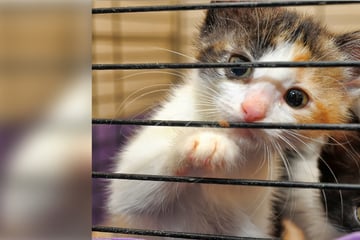Giardia in cats: What is it and how can you treat it?
If your cat has come down with a nasty-as-hell case of diarrhea, watch out - it could be giardia. This nasty parasite can cause your feline friend a whole lot of stress, and you're going to want to come to the rescue. Here's everything you need to know about giardia's symptoms and treatment for cats.
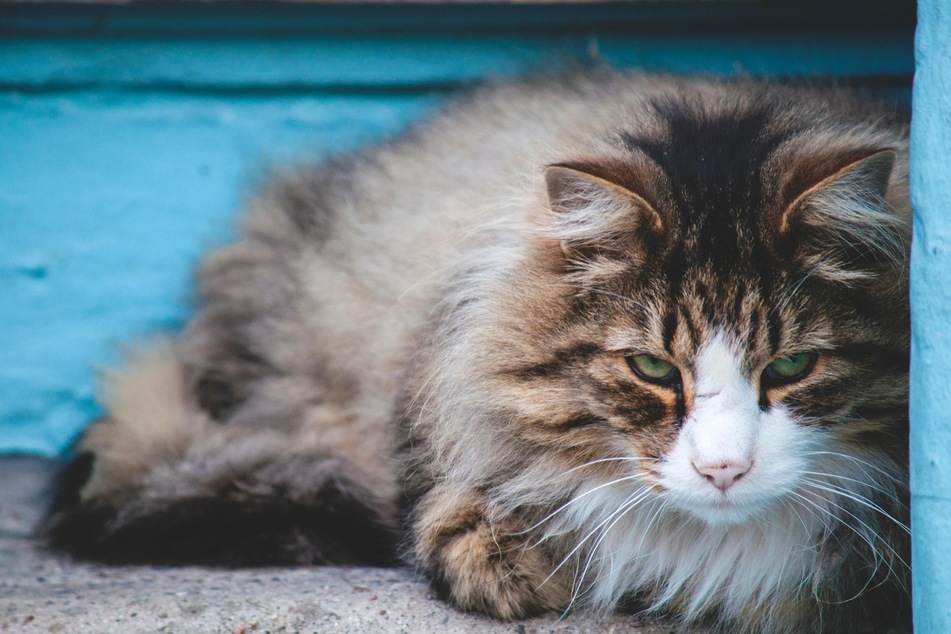
Giardia is a parasite that can infect our fluffy friends.
The illness causes a great deal of nastiness for cats and humans alike, and is certainly one to try to avoid at all costs. For starters, the explosive diarrhea it causes is one pain in the butt – literally – to clean up.
If you think your cat might be suffering from giardia, you've come to the right place. Our cat guide is here to take you through what it is, what causes it, and how it can be treated.
Hopefully, with these tips, your little one will be feeling better in no time flat.
What is giardia in cats?
Let's set things straight right off the bat: if your cat contracts giardia, you must take it immediately to the vet for treatment.
Giardia is a single-celled parasite that infests the intestines of whatever animal it infects.
In addition to infesting the small intestines, giardia can infest the host's colon and gallbladder. It's not an unusual disease for a cat to get once or twice during its lifetime, but can lead to severe health consequences if left untreated, as it weakens the immune system.
As a result of infection, the host of a giardia infection will no longer be able to absorb fats and proteins like they're supposed to. The parasite attacks the mucous membranes of a cat, severely effecting its feces and causing serious digestive problems.
How do cats get giardia?
Giardia comes from cysts that are found in contaminated ground, hosts, or drinking water. These cysts contain at least two giardia cells (they are single-celled organisms) and are generally ingested through the mouth or nose. These giardia cysts can actually survive for weeks or months outside of their host environment, making them difficult to fight.
Cats become infected with giardia by eating, licking, or sniffing infested surfaces, or by grooming other animals. An infested cat will repeatedly infect itself through the cleaning of its anal area, making it vital that action is taken to combat the infection.
Cats that wander freely around outside are far more likely to contract giardia, as they will drink from puddles or other bodies of water that may be infected.
It is also possible for cat owners to accidentally introduce the parasites themselves. An example might be if they had stepped on infected dog excrement and trampled it into the house, or if they had perhaps stroked an infected animal.
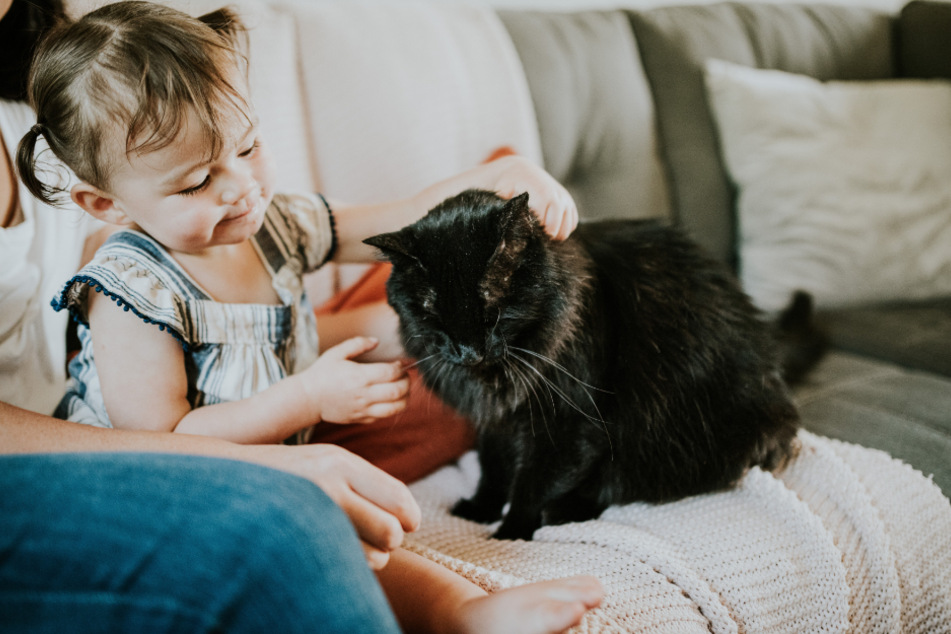
How does an indoor cat get giardia?
Considering that giardia is a parasite usually passed by a cat drinking water from the outside world or, at least, contracting it from something outside of the home, it is unusual for an indoor cat to get infected.
That being said, it isn't unheard of, and there are a few things to consider if this happens.
Are you absolutely sure that your drinking water is clean? It could be an explanation for why your indoor cat contracted giardia. Try not to worry, but perhaps get your water checked for any contamination.
In the end, the giardia parasite can survive in a variety of environments. Maybe your cat licked or came into contact with something that came in from the outside world. Maybe it ate something it shouldn't have. There are a huge number of possible reasons for a giardia-infested indoor cat.
Can I get giardia from my cat?
While it's possible for humans to catch giardia from their cats, it's quite unlikely.
Why? Well, luckily for us humans, only very few different types of giardia can actually infect us.
That doesn't mean that we should be lax if it does happen, as these little parasites can stuff up our gastrointestinal system pretty badly. Doesn't sound fun, does it?
People who are particularly at risk if they contract a giardia infection include young children, older people, and those who have some kind of immune deficiency.
How can a human catch giardia from a cat?
A human can become infected with giardia if they get their cat's feces smeared on themselves.
The feces would have to enter the body somehow, like through a cut, through the mouth, or another entry point.
After petting an infected cat, make sure that you wash your hands thoroughly. On top of that, don't let an infected cat put its little butt in your face. Be especially careful when cleaning up its litter tray, as that thing is almost certainly infected with the nasty infection critters.
All this said, though, a cat still needs attention. This is especially true when it's sick. You can keep petting your kitty, even if it is infected with giardia. Just be careful about it.
Does my cat have giardia?
We cannot diagnose your cat, and suggest you take your cat to a vet if you are concerned. Here is some information on what the symptoms of giardia are, and what you should look out for.
The following is a selection of symptoms that could suggest that your cat has a giardia infection.
Cat giardia symptoms
It's challenging to figure out whether your cat has giardia, so a visit to the veterinarian is best.
These symptoms can occur due to a variety of different diseases and parasites, but may also indicate giardia. An important factor to keep in mind is that giardia is a periodic issue that will recur many times.
Symptoms of giardia in cats include:
- Frequent and recurrent diarrhea. It will be light, watery, full of mucous, and sometimes bloody. Pay attention to your cat's stool when cleaning its tray.
- Undigested food remains in the feces.
- Sudden or gradual weight loss for no explainable reason.
- Regular and nasty vomiting.
- A loss of appetite.
- Your cat seems listless.
- A heavy or even light fever.
In some cases, the nasty diarrhea can become almost chronic. Not only is this awful to clean up, but it's no fun for the cat either. It can also be that your cat doesn't always have liquid stool often, but that it is spread out over a number of weeks. This recurrence is typical of giardia, and something you should look out for.
Long term effects of giardia in cats
Not to be the barer of bad news, but giardia isn't something to be taken lightly.
If you ignore that your kitty is sick, you are seriously putting it at risk. Do you want your feline friend to be healthy and happy? Take it to the veterinarian and get it checked out.
While the most common sign of giardia is watery diarrhea, long term effects include serious weight loss over short periods of times and, if left untreated for months or years, death.
Regular vet check-ups will also help keep your cat safe and thriving.
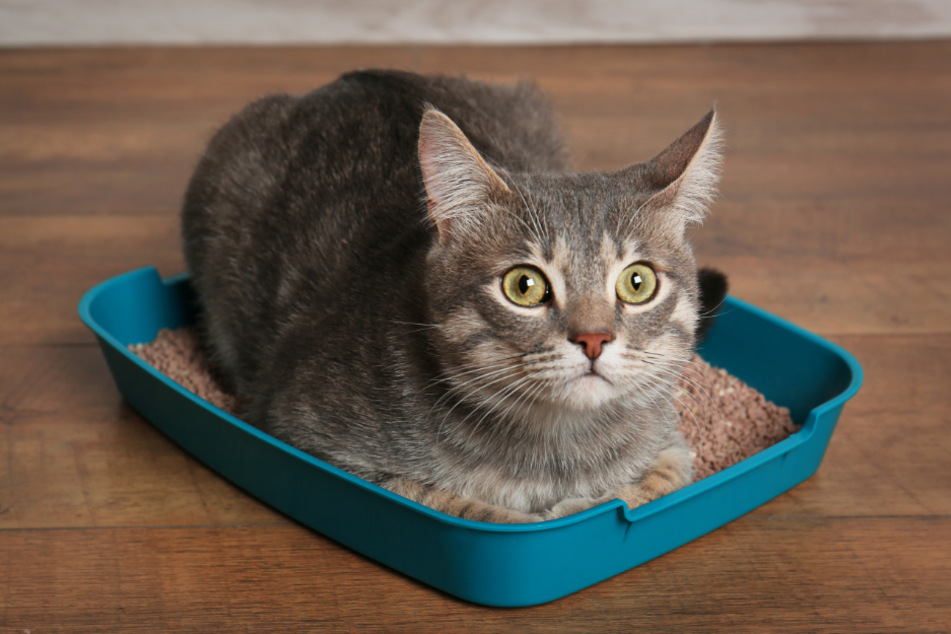
When to get your cat tested for giardia
If you are seriously concerned that your cat may have giardia, a test needs to be completed. At the vet's request, you will likely need to collect samples of your cat's stool, pooled from over the last three to four days.
Remember, though, that sometimes negative tests are false. Giardia cysts are not excreted with every bowel movement (which is explains why you will usually be asked to take three or four samples over multiple days), so it's not unusual to get a false negative.
In the case that your cat has been tested but comes up negative, it should still continue to get treatment from the vet if it displays severe symptoms. Veterinarians should be your first and best port of call for all things cat-health related.
Cat giardia treatments
Giardia in cats can be treated in many different ways, some better than others. These treatments should be decided upon by the vet, and not by a random Google search, but there are a few possibilities that will likely be the vet's go-to.
Here three possible treatments for giardia in cats:
Treat giardia in cats with medication
The problem with giardia parasites is that they are seriously resistant and adaptable, making medications only effective to a certain extent. After consulting your vet, you may be given a drug treatment therapy that will need to be repeated several times under a very strict and specific protocol.
Your cat will most likely be prescribed antibiotics or a de-worming medication to combat giardia. Your cat's health condition will determine what your veterinarian is willing to give it, and none of these treatments are 100% likely to work. The length of the treatment can also vary significantly from cat to cat.
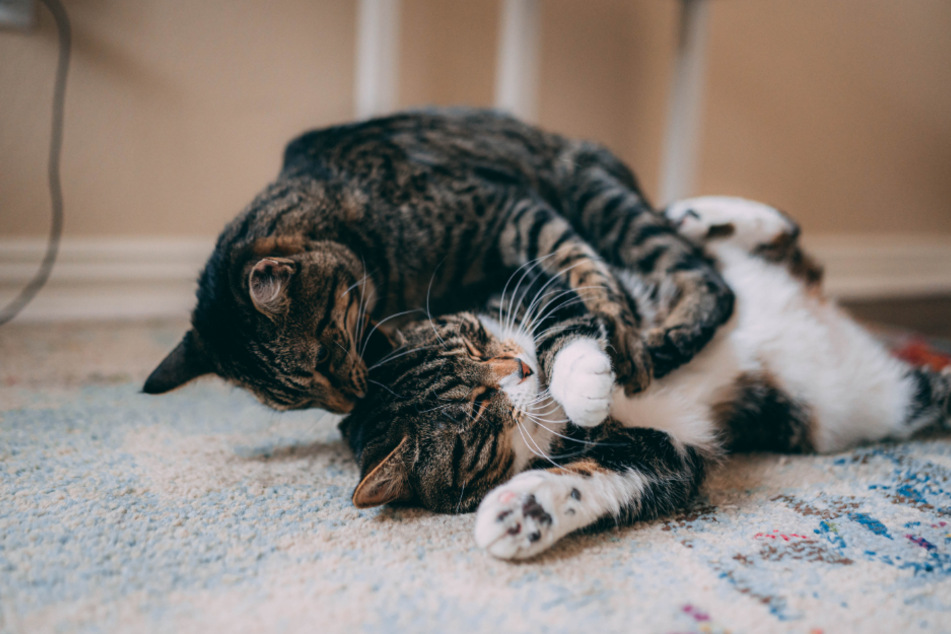
Treat giardia in cats through better hygiene
As giardia is transferred through infected water and other substances, it is extremely important to enforce strict hygiene measures. This will limit the chance of your cat reinfecting itself and/or passing it on to other human or animal members of the household.
Protocol 1: Clean the litter box several times a day - Make sure that you are disposing all of your cat's excrement in sealed plastic bags within your household waste. Wash your cat's box and change the litter often.
Protocol 2: Clean the cat's sleeping places and contact surfaces - Wash any carpets, fabric blankets, or pillows your cat sleeps on at about 140 degrees Fahrenheit. Disinfect your house's floors and walls, including steam cleaning hard surfaces and vacuuming any scratch posts you might have.
Protocol 3: Dispose of all non-washable textiles and items - Anything that cannot be disinfected and washed, and has come into contact with your feline friend's backside, needs to go. If an item can be easily-washed, it can be kept.
Protocol 4: Clean all drinking and food bowls daily - Using hot water and detergent, make sure that you are washing all food or water bowls each and every day. All water should be replaced regularly.
Protocol 5: Keep your cat's butt clean - It's kind of disgusting, but it's seriously important. Your kitty's anus area should be absolutely spotless. Your veterinarian will likely shave some of the hair around your cat's anus to make it easier to clean and to stop any feces from getting into its fur.
Protocol 6: Wash your hands - Don't forget to wash your hands regularly! With Covid-19, so we're pretty sure you know the drill. Between the fingers, plenty of soap, at least thirty seconds.
Protocol 7: Leave your cat inside - Your cat can get reinfected outside, and can pass it onto other animals and cause a chain reaction. It's just not a good idea to let it out when it's infected with giardia.
Protocol 8: Make sure all animals in the household are treated - If one pet has been infected, it isn't unlikely that your pooch or other feline friend is also infected. Isolate them, take them to the vet as well, and make sure that they are all treated as recommended by an animal professional.
Protocol 9: Go to the doctor yourself - As we mentioned, it is possible for humans to catch giardia. Go to the doctor, get tested, and make sure you don't share fecal matter with any other humans.
Veterinarians regularly publish information leaflets on the most important hygiene points to be made during the treatment of giardia and other infections in cats, dogs, and other pets. Read them, as they can be very informative.
Treat giardia in cats through dietary changes
The final suggestion we have is to change your cat's diet.
The reason is pretty simple: carbohydrates and fats are like an amusement park for parasites. Cat owners should try to reduce their cat's consumption of these food groups. That is, after consultation with your veterinarian, of course.
Make sure that you head over to your veterinary practice if your cat is suspected of having giardia. Get it diagnosed, and then ask for how you should change its diet. If you cut food out without consulting a professional first, things could end badly.
Giardia in cats: The TLDR version
Let's recap, to keep everyone on the same Here are the key points:
- Giardia is usually not too dangerous, but can be bad if left untreated.
- Giardia can cause a number of rather unpleasant symptoms, including diarrhea.
- Giardia can infect humans, but rarely. Get checked, but don't freak out.
- If you suspect giardia in your cat, go to the vet.
- There are multiple treatments, only to be tried after your vet has been consulted.
Treating giardia in cats can take a long time, and it's not always easy. If you abide bide strict hygiene practices, have some patience, and remain loving towards your furry friend, your cat will be healthy and happy in no time. Try not to worry.
Cover photo: Unsplash / Lina White



